8. Before the Rain (1994)
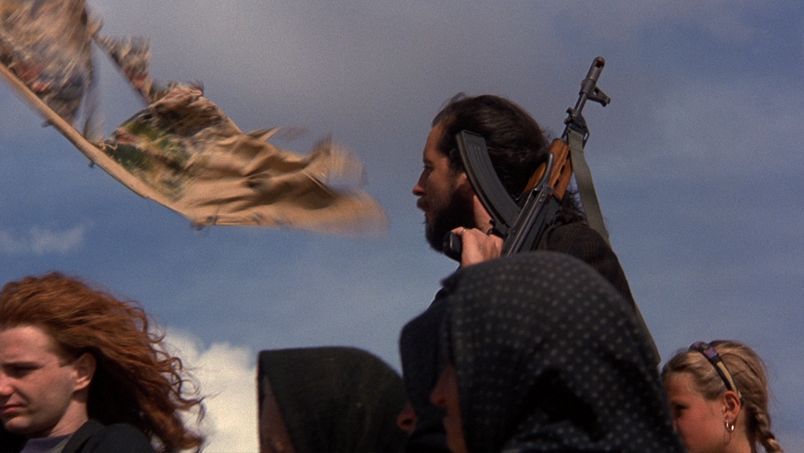
As the Twentieth Century neared its end, Europe was racked with upheaval. Many had long wished for the fall of the “Iron Curtain” of Communism but when it did fall many of the regional and ethnic differences it had held in check for decades returned to the fore. Among the surprising developments was the resurrection of the ancient country of Macedonia, though this reiteration was torn by internal strife between ethnic factions.
Understandably, the making of films was not a major consideration but one film, which provided a telling comment on the situation was the Academy nominated Before the Rain. The product of first time feature film director Milcho Manchevski (who had already immigrated to New York City in order to start his career), the film details three interrelated stories centering on the conflict in Macedonia, though one of them takes place in London and features characters who have witnessed the horrors.
One distinctive element is that the happenings in the stories observed through the prism of the various stories lenses significantly change from one episode to the next.
The point is that the details don’t, in the end, matter for the overwhelming tragedy of the situation contains endless variations of misery and pathos. The heart-rending production made stars of no one (even the director has only made three films since, to lesser effect) but this one film stands as a major document of a most troubled and important moment in European history.
9. Leon the Professional (1994)
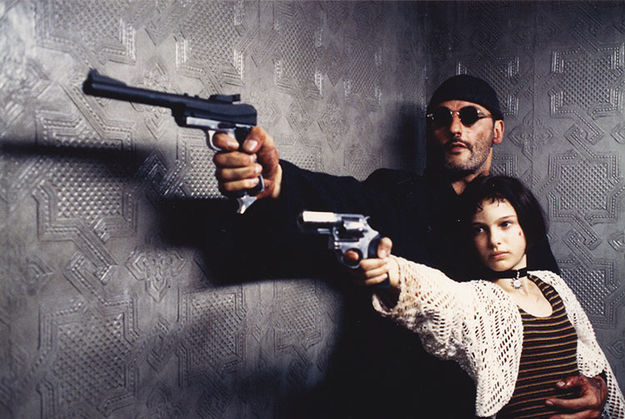
There is a case to be made for French director Luc Bresson being the Claude Chabrol of his film making era. Both men are/were quite prolific, especially by modern film standards, and excel in genre pieces while also venturing into conventionally “serious” cinematic ventures. Ironically, one of the most acclaimed and awarded of his films was an expert crime thriller/character study which still has a place in the genre pantheon today.
The professional of the title, Leon (Jean Reno) is an expert at killing, which is his profession, working for a local kingpin (Danny Aiello) in New York’s Little Italy. He is efficient and unemotional (as opposed to ruthless) but he meets his match when confronted by a twelve year old girl who has survived the massacre of her family by a rogue DEA agent (Gary Oldman) after her father decides to keep for himself part of a cocaine stash he’s suppose to be guarding.
The girl, who was attending an exclusive school for bright and troubled young women, comes under Leon’s protection but also learns his trade as they avenge her family at the hands of Leon’s own enemies. The craft in this film is impeccable but the cast makes it truly special.
The actress playing the young girl, however, is the magic ingredient as she is portrayed by a debuting Natalie Portman, starting on her Oscar winning career path as one of the best film actresses of her generation. Anyone stating that they could see that in her performance in this film would only be stating the obvious as she already was demonstrating the qualities and talent which would make her a top professional in her own right.
10. Il Postino (1994)
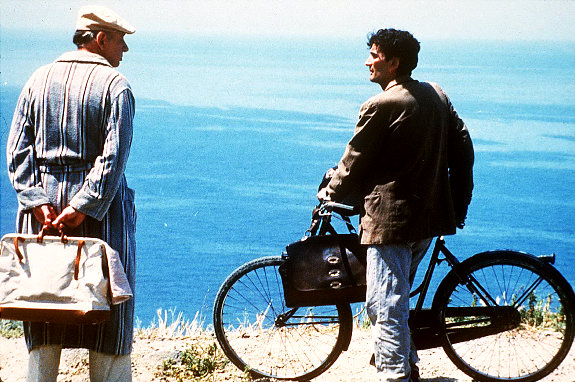
The morning the Academy Award nominations for 1994 were announced Oscar watchers got a big shock. Virtually everyone had expected the last alphabetic nominee on the Best Actor list to be John Travolta (Get Shorty) but instead the name and picture which appeared on the nominee screen was Massimo Troisi, an Italian actor and writer, for the art house film Il Postino. One other surprise was that the nominee was posthumous, an Academy rarity.
The story behind the film and his death was even more dramatic as Troisi, who co-wrote the film, considered it his big international break and delayed much needed heart surgery in order to make the film…and lived for one day after its completion. The film itself, taken from a novel well known in Italy, tells the story of Mario (Troisi), a young man who pretends to become a Communist in order to lands a job as a postman in his small village (where Communism is considered quite differently than in the US).
He is assigned to hand deliver the mail to exiled Chilean poet Pablo Neruda (veteran French star Phillippe Noiret), who, though reclusive, befriends the unlettered but warm hearted young man and advises him in matters of the heart and in personal and political enrichment. (Neruda was a real person but this is not a true story.)
The film is touching and funny and ultimately quite sad (for the star, life imitated art in a haunting way). The director was Indian born British director Michael Radford, who has not had a great international career but he and his tragic star-writer did have one spectacular moment in the cinematic sun.
11. Wild Reeds (1994)
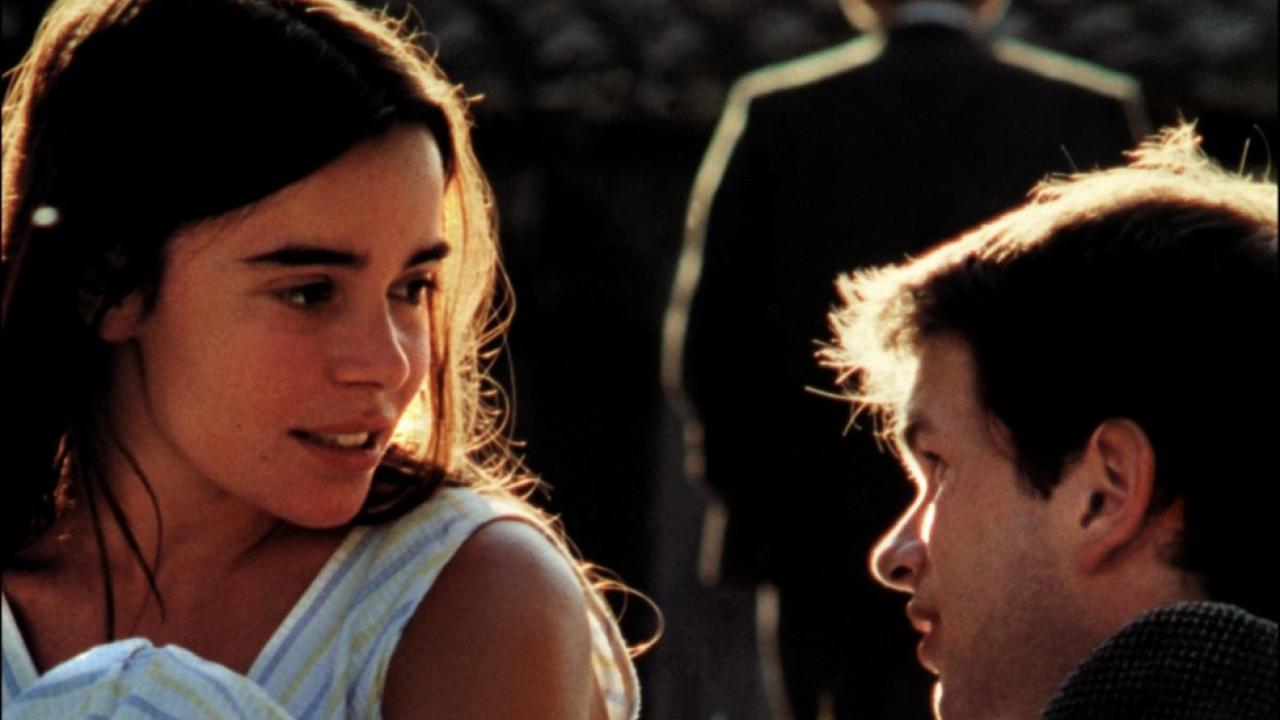
Though his international career may not be quite as illustrious as some of his New Wave compatriots, Andre Techine has had a quite respectable output in his native France and has also had international art house success, notably Ma Saison Preferee (1993) and his most awarded film, Wild Reeds. Set during the Algerian-French conflict of the early 1960s, the film is also a deeply emotional coming of age (sexual and otherwise) story.
Francois (Gael Morel) is a boy from humble circumstances but he loves fine things such as literature and film and he wants to progress upward, notably obtaining his high school diploma (easier said than done in that time and place). Maite (Elodie Bouchez), the daughter of his French teacher is his confidante and intellectual sparring partner and she would like to be more but something is holding back the relationship.
That something crystallizes in the form of handsome and sensuous Serge (Stephane Rideau), who becomes an object of love for Francois, though the feeling is not mutual, since Serge finds he has an attraction to Maite. Adding to this tangled romantic stalemate is the arrival of Henri (Frederic Gorny), a refugee from the Algerian conflict whose harsh experiences have left him with a heightened political conscience and little patience with the polite ménage into which he has fallen.
This is a highly satisfying film which tells a universally human story while providing an accurately detailed portrait of a highly charged era in France, which provides a telling context to the story. Though the Academy again turned thumbs down, the film was richly awarded on the European continent.
12. La Ceremonie (1995)

While French New Wave staple Claude Chabrol may not have still been au courante by the 1990s, he was still out in the film world and capable of turning out some fine work and none was better than this dark thriller.
The Lelievres family (headed by matriarch Catherine, played by French-British star Jacqueline Bisset) hires the rather moody Sophie (Sandrine Bonnaire) as their new maid. The sullen, closed off woman is harboring a sad and embarrassing secret she has no intention of sharing.
However, her ongoing condition (as well as an alarming item from her distant past) make her susceptible to the machinations of Jeanne (Isabelle Huppert), the poisonous local postmistress who seems to have a grudge of her own (and, perhaps, within only her own head) against the family. The two together form an unhealthy partnership which can mean no good for the family or for each other. The various parties end up on a collision course from which none will emerge completely unscathed.
Chabrol was always a most adroit creator of suspense films which contained an extra dimension of character and theme and this one, highlighted by one of his best casts (particularly the two leading ladies, among the best actresses in their generation of French film), was among his finest…and pretty much last success. Though he would continue to make films up to his death in 2010, this would be his last great triumph and a wonderful autumnal farewell.
13. La Haine (1995)
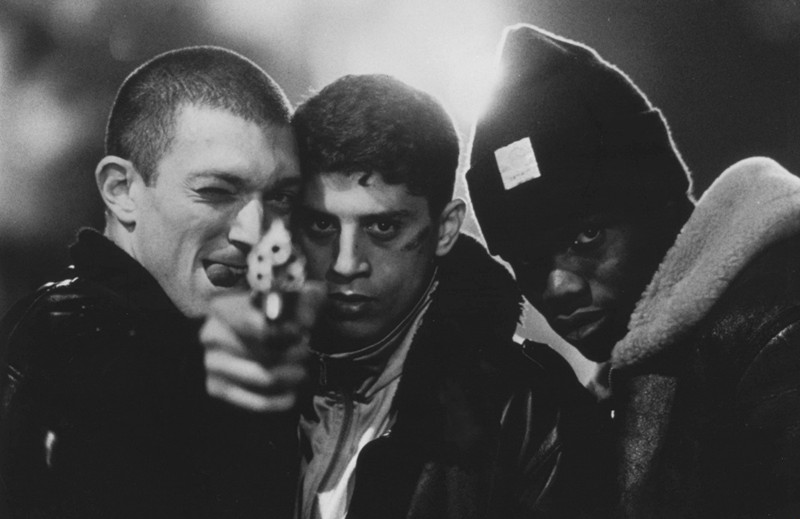
The naïve and romantic often think of foreign countries in trite and romantic terms. Such people may think of France as a place where the beautifully dressed dine in elegant restaurants facing the Eiffel Tower or drinking champagne while floating in a hot air balloon over wine country in Provence but France, like any country, especially modern ones, has its fair share of problems and unpretty places.
Many of these problems stem from the post-World War II era when the country, with its male population majorly devastated by the war, imported male workers from its third world colonies in Africa and Asia, only allowing their families to join them a long time thereafter. Those families remained in the country and had descendents but were seemingly always looked at as “other”.
This tangled situation provides the background from one of the most trenchantly powerful French films of the 1990s, La Haine (Hate). The product of writer-director Mathieu Kassovitz, (who also acts, edits, and produces), the film is set in a French housing project which has become a de facto ethnic ghetto.
The time line covers nineteen hours of tense time after the territory has been torn asunder by a race riot. The focus is on three young men, friends even though they are from different backgrounds. The disturbed, rage filled Vinz (Vincent Cassel), who is Jewish, sees himself as a modern, violence prone gangster. Hubert (Hubert Kounde), of African extraction, deals drugs but had hoped to go legit by establishing a gym, sadly lost in a fire during the riot. The friend who dwells in the emotional area between one extreme friend and another is the sadly accepting French-Algerian Said (Said Taghmaoui).
The police-related death of a friend during the riot causes Vinz to fulfill his fantasy of killing a policeman. This will put all concerned on a collision course to tragedy. The point of it all is that hatred begets hatred and one bad acts lead to another and another with no end in sight.
The wave of acclaim spread through Europe and into the US and, coming early in his career, elevated the writer-director into the big leagues. Sadly, he has yet to create anything else approaching the level of this film but it still holds up as a superior social document.
14. Breaking the Waves (1996)
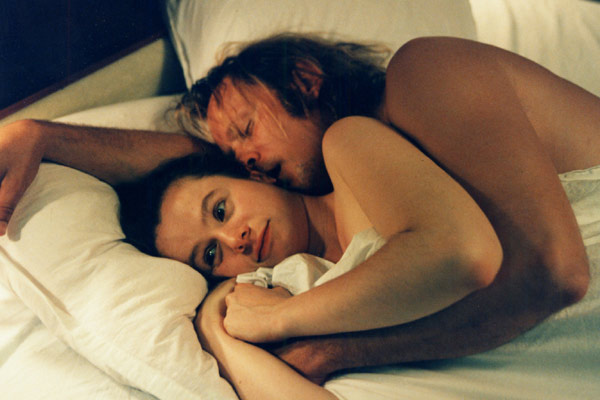
After the critical success of Zentropa, Lars Von Trier truly hit pay dirt with his next picture, a gritty yet strangely miraculously uplifting fable of faith, sacrifice and redemption.
Bess (brilliant newcomer Emily Watson) is a simple and naïve girl who has grown up in a very strict religious community in a remote village on the Scottish coast. She finds the courage to fall in love and marry an outsider, Jan (Stellan Skarsgard), a rough but passionate worker on an oil rig, who does not share those religious values at all. Bess is happy until an accident leaves Jan a quadriplegic.
Even more disturbing, Jan informs her that the only thing which will make his life bearable is for Bess to start going out and have wanton sex and return to tell him about her experiences on a continuous basis…which, being a good wife, she proceeds to do! Her community turns on her with a vengeance leading to tragedy but, astonishingly, also paving the way for a miracle.
This film was an example of a European based film movement called Dogma 95, of which Von Trier was a founding architect. The movement strained to find realism by doing away with make-up, artificial lighting, camera tricks and music to heighten emotions…in short to capture life in an unadorned way (and the hard core films in this style also tried to tell the story in real time). Though the story of Breaking the Waves may not sound realistic, the treatment most surely is and end effect does not feel forced or artificial but devastatingly true.
One big factor in this is Watson, making one of the great debuts in film history (after Helena Bonham-Carter bowed out for various reasons). Bess could easily have come off as a masochistic idiot (and Von Trier seems to frame all of his leading female characters in a similar way) but Watson makes the viewer care about a woman who loves too much and knows too little. It turned out to be an auspicious credit for all concerned (and netted Watson an Oscar nomination).
15. Kolya (1996)
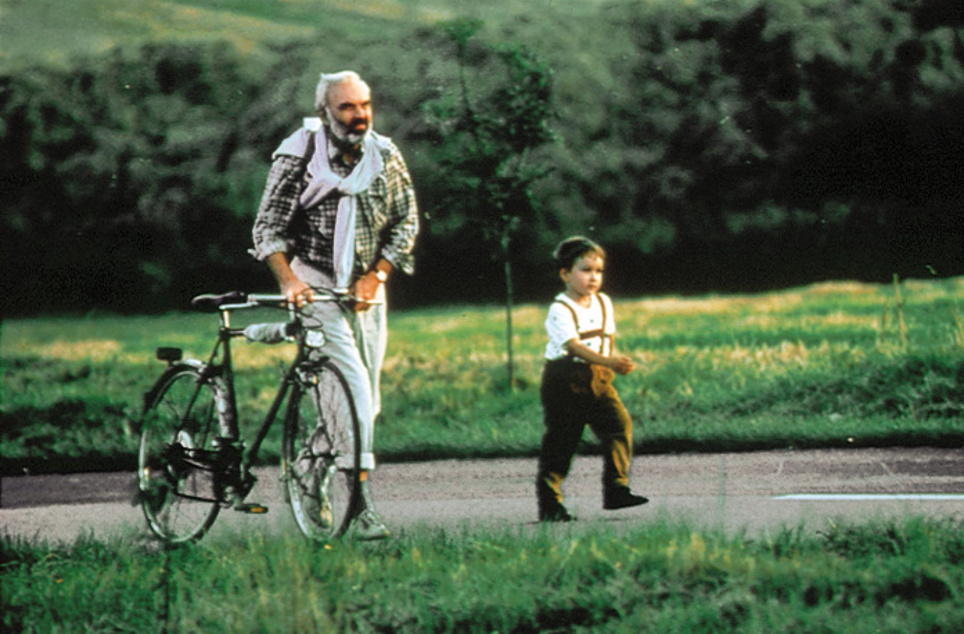
Another of the profound changes which took place after the fall of the Iron Curtain was the end of the country of Czechoslovakia, which split into Slovakia and the Czech National State, the later being the more industrialized and cosmopolitan section. Though the former country had known some fine cinematic moments during the “Prague Spring” of the 1960s, that time felt quite remote by the 1990s.
In light of that the appearance of Kolya, a moving and, ultimately, Academy Award winning film was a bit of a surprise. The film’s director, Jan Sverak, had created a nominated foreign film with 1991’s The Elementary School, which was not a art house hit (and he also had won a student Academy Award). Kolya was a heartfelt film concerning a father and son like relationship and the story behind the film was that Sverak cast his own father, Zdenek, who wrote the film, in the lead role.
The elder Sverak plays a concert cellist who has fallen on hard times due to a political error. He had spent his life in earlier and happier times chasing women and avoiding responsibility. Oddly enough, he becomes susceptible to an offer to participate in a sham marriage with a Russian woman who wishes to become a Czech citizen in order to immigrate to West Germany and the man she really loves.
There’s money in it all for the mock husband but it turns out that the woman comes along with a small son, Kolya, and, as it also turns out, she must leave the child in the man’s care when she departs. Predictably, a bond forms but politics will end up playing a major part in the story for better and worse. In the end this is history as seen through the eyes of common people caught up in events beyond their control, though in this case the events were extraordinary and positive (for the moment, anyway).
Sverak pere and fils do a fine job of putting a human face on this once in a lifetime movement of events. Unfortunately, nothing in the father or son’s careers since that time has come up to the level of this film but, again, like others of the day, they had a great moment.